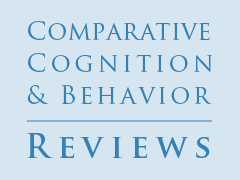ManyDogs Project: A Big Team Science Approach to Investigating Canine Behavior and Cognition
ManyDogs Project
Daniela Alberghina
Department of Veterinary Sciences, University of Messina, Messina, Italy
Emily E. Bray
School of Anthropology, University of Arizona, Tucson, Arizona, USA
Canine Companions for Independence, Santa Rosa, California, USA
Daphna Buchsbaum
Department of Cognitive, Linguistic, and Psychological Sciences, Brown University, Providence, Rhode Island, USA
Sarah- Elizabeth Byosiere
Thinking Dog Center, Department of Psychology, Hunter College, City University of New York, New York City, New York, USA
Julia Espinosa
Department of Human Evolutionary Biology, Harvard University, Cambridge, Massachusetts, USA
Gitanjali E. Gnanadesikan
School of Anthropology, University of Arizona, Tucson, Arizona, USA
Cognitive Science Program, University of Arizona, Tucson, Arizona, USA
C.-N. Alexandrina Guran
Vienna Cognitive Science Hub, University of Vienna, Vienna, Austria
Social, Cognitive and Affective Neuroscience (SCAN) Unit, Department of Cognition, Emotion, and Methods in Psychology, Faculty of Psychology, University of Vienna, Vienna, Austria
Elizabeth Hare
Dog Genetics LLC, Astoria, New York, USA
Daniel J. Horschler
Department of Psychology, Yale University, New Haven, Connecticut, USA
Ludwig Huber
Messerli Research Institute, University of Veterinary Medicine Vienna, Vienna, Austria
Valerie A. Kuhlmeier
Department of Psychology, Queen’s University, Kingston, Ontario, Canada
Evan L. MacLean
College of Veterinary Medicine, University of Arizona, Tucson, Arizona, USA
Department of Psychology, University of Arizona, Tucson, Arizona, USA
Madeline H. Pelgrim
Department of Cognitive, Linguistic, and Psychological Sciences, Brown University, Providence, Rhode Island, USA
Bryan Perez
Thinking Dog Center, Department of Psychology, Hunter College, City University of New York, New York City, New York, USA
Dana Ravid-Schurr
Thinking Dog Center, Department of Psychology, Hunter College, City University of New York, New York City, New York, USA
College of Staten Island & The Graduate Center, City University of New York, New York City, New York, USA
Liza Rothkoff
Thinking Dog Center, Department of Psychology, Hunter College, City University of New York, New York City, New York, USA
Courtney L. Sexton
Center for the Advanced Study of Human Paleobiology, The George Washington University, Washington, DC, USA
Zachary A. Silver
Department of Psychology, Yale University, New Haven, Connecticut, USA
Jeffrey R. Stevens
Department of Psychology, Center for Brain, Biology & Behavior, University of Nebraska-Lincoln, Lincoln, Nebraska, USA
Reading Options
Abstract
Dogs have a special place in human history as the first domesticated species and play important roles in many cultures around the world. However, their role in scientific studies has been relatively recent. With a few notable exceptions (e.g., Darwin, Pavlov, Scott, and Fuller), domestic dogs were not commonly the subject of rigorous scientific investigation of behavior until the late 1990s. Although the number of canine science studies has increased dramatically over the last 20 years, most research groups are limited in the inferences they can draw because of the relatively small sample sizes used, along with the exceptional diversity observed in dogs (e.g., breed, geographic location, experience). To this end, we introduce the ManyDogs Project, an international consortium of researchers interested in taking a big team science approach to understanding canine behavioral science. We begin by discussing why studying dogs provides valuable insights into behavior and cognition, evolutionary processes, human health, and applications for animal welfare. We then highlight other big team science projects that have previously been conducted in canine science and emphasize the benefits of our approach. Finally, we introduce the ManyDogs Project and our mission: (a) replicating important findings, (b) investigating moderators that need a large sample size such as breed differences, (c) reaching methodological consensus, (d) investigating cross-cultural differences, and (e) setting a standard for replication studies in general. In doing so, we hope to address previous limitations in individual lab studies and previous big team science frameworks to deepen our understanding of canine behavior and cognition.
Keywords: dogs, ManyDogs, big-team science, canine science, replication
Author Note: Sarah-Elizabeth Byosiere, Thinking Dog Center, Department of Psychology, Hunter College, City University of New York, New York, NY 10065.
Correspondence concerning this article should be addressed to Sarah-Elizabeth Byosiere at manydogsproject@gmail.com.

